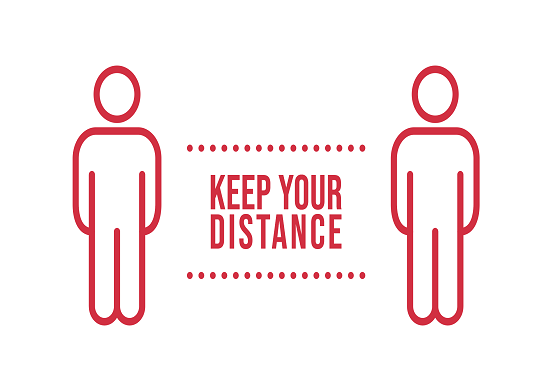Staying Safe This Season

It is quite apparent that the United States is not doing well right now due to the ongoing Covid-19 pandemic.
As of December 22, 2020, the U.S. has had over 18 million Covid-19 cases as well as over 300,000 deaths, according to the Johns Hopkins COVID-19 map.
Experts predict that these numbers will spike tremendously during the winter because of the congregation indoors due to the cold weather.
It is more critical now to do everything we can to stay safe and help flatten the curve.
1: Masks
Everyone must adhere to proper mask guidelines in their respective state, county, or town. Cloth or non-medical disposable masks should be worn to stay safe. Surgical masks and respirators should be reserved for healthcare workers and first responders.
We should ensure that masks fit properly and cover the nose and mouth.
Also, make sure that the mask chosen has 2-3 layers and is made from tightly woven fabric.
The CDC recommends that everyone above the age of two wears a mask when in public settings and around people who do not live in a common household.
Certain exceptions can be made for people who have breathing problems and cognitive/sensory issues. Masks with clear panels can help deaf individuals read lips and communicate. More information can be found on the CDC website: https://www.cdc.gov/coronavirus/2019-ncov/prevent-getting-sick/diy-cloth-face-coverings.html.
2: Social Distancing
Social distancing is the act of keeping an adequate and safe distance between individuals who do not live in the same household together.
It is advised to stay at least six feet away from others who are not living together.
The act of social distancing is essential because it helps minimize the spread of COVID-19.
When practiced correctly, social distancing can reduce the spread of COVID-19 by 75%, according to Visual Capitalist.
It is essential to familiarize yourself with the social distancing regulations at establishments regularly visited, i.e., grocery store, pharmacy, place of work).
It is also recommended that everyone take precautions when using public transit. For example, when in a taxi or rideshare, try to stay as far away from the driver as possible. When engaging with others, choose safe activities. For example, sit in a socially distanced circle outside to talk with friends. More detailed information can be found on the CDC website: https://www.cdc.gov/coronavirus/2019-ncov/prevent-getting-sick/social-distancing.html.
3: Hygiene/Cleaning
To prevent germs from spreading, everyone must use soap and water to clean their hands for at least 20 seconds.
If this is not available, hand sanitizers that contain at least 60% alcohol should be used. (Keep such hand sanitizer out of reach of young children, as ingestion could result in alcohol poisoning. If pets ingest alcohol-based hand sanitizer, call your veterinarian immediately.)
It is also good practice to clean and disinfect your home. On surfaces, use soap and water first, then use disinfectant.
f someone in your household becomes ill, keep a separate bedroom and bathroom for them if possible. Read more about this on the CDC website: https://www.cdc.gov/coronavirus/2019-ncov/prevent-getting-sick/hand-sanitizer.html, https://www.cdc.gov/coronavirus/2019-ncov/prevent-getting-sick/gloves.html, https://www.cdc.gov/coronavirus/2019-ncov/prevent-getting-sick/disinfecting-your-home.html.









